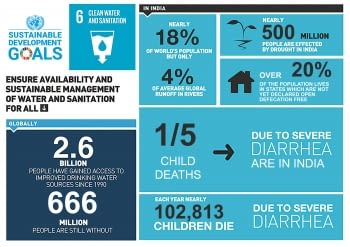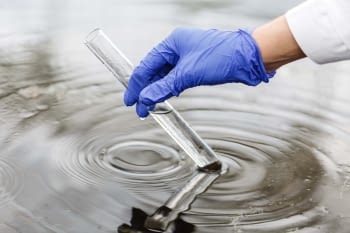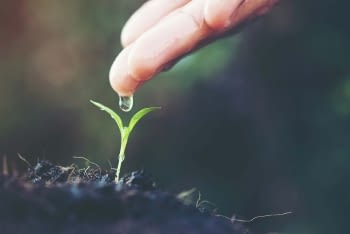Since 1993, on March 22 of each year, World Water Day is celebrated, a date set by the United Nations that focuses on highlighting the importance of freshwater for the entire world population. The fact that it is - literally - a resource of vital importance for the human being and the problems of its supply and scarcity in constant increase, have led us to refer to water as "liquid gold".
That is why, every March 22, the messages are reinforced to raise awareness of the 2.2 billion people living without access to drinking water and accelerate the search for measures to address the global water crisis, in line with the spirit of the Sustainable Development Goal 6: Water and Sanitation for all in 2030.
A crucial challenge: water and climate change
World Water Day 2020 will of focus on the binomial water - climate change and their close relationship. In fact, only by consulting some of the data and forecasts that are being communicated for the occasion, this strong link is quickly understood.As they point out from the United Nations ...
- A third of people live without drinking water.
- In 2040, global energy demand will have increased by 25%, while water demand will double.
- In 2050, up to 5.7 billion people could be living in areas where water is a scarce resource.
This year's campaign has the will to show how our use of water, as a society, will help reduce floods, droughts, shortages and pollution and combat climate change. In fact, it is estimated that if the increase in global warming were limited to 1.5 ° C above pre-industrial levels, climate drought could be reduced by up to 50%.
Wastewater, the resource (still) wasted
Annually, and within the World Water Resources (Assessment ProgramWWAP), the UN prepares the World Report on the Development of Water Resources. This is an exhaustive study that offers a global overview of the state of the planet's freshwater resources. Its objective is to provide tools to decision-makers for the implementation of the sustainable use of these precious resources.The 2017 edition was dedicated to WasteWater. Under the title “Wastewater: the wasted resource”, the Report already pointed out that the improvement on wastewater management generated social, environmental and economic benefits essential for sustainable development.
Three years ago, the UN reflected the fundamental role that Wastewater was “about to play a big role in the context of a circular economy, in which economic development is balanced with the protection of natural resources and environmental sustainability, and where a cleaner and more sustainable economy has a positive effect on water quality”. Its main objective was to inform and transmit to decision-makers, the government, civil society and the private sector about the importance of treating wastewater as “an undervalued and sustainable source of water, energy, nutrients and others recoverable by-products, rather than something that should be eliminated or a nuisance that should be ignored”. And, more than 80% of the world's wastewater, and more than 95% in some less developed countries, is released into the environment without treatment.
Already with the 2030 Agenda on the horizon, it was stressed that improved management was not only crucial to achieving the Wastewater Sustainable Development Goal (SDG) on drinking water and sanitation (SDG 6), which we talked about recently on the DAGA blog, but also for the achievement of other SDGs. "It is not a burden, but a resource," said one of the headlines of the page that included the main messages of the Report, among which one could read, also, how capacity building, research and development aimed at improving Wastewater management "generates employment opportunities."
In spite of everything, three years later, figures, contrasted data and the title of the Report are still totally valid and the calendar tightens. Knowing that, a more efficient use of water (which includes better management of wastewater) can reduce greenhouse gases, protect health and, above all, save lives, continue without acting on it is, directly, a self-destructive act.





